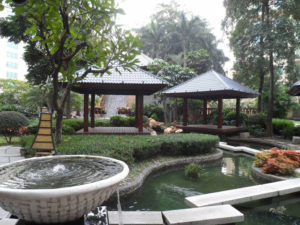Benefits of Experiencing Life in China
 Parents enroll their children in language immersion programs in order to give them the gift of knowing another language. They also expect that their children will do as well or better in learning the regular curriculum in the immersion language as will children who are learning that content in English. As a result, there are two fundamental strands of student assessment in elementary immersion programs: assessment of student learning in various subjects taught in the language, (e.g., math and reading); and assessment of the student’s proficiency in the immersion language. Both are used to evaluate individual student progress, to report to parents and the general community, and to support continual program improvement.
Parents enroll their children in language immersion programs in order to give them the gift of knowing another language. They also expect that their children will do as well or better in learning the regular curriculum in the immersion language as will children who are learning that content in English. As a result, there are two fundamental strands of student assessment in elementary immersion programs: assessment of student learning in various subjects taught in the language, (e.g., math and reading); and assessment of the student’s proficiency in the immersion language. Both are used to evaluate individual student progress, to report to parents and the general community, and to support continual program improvement.
 In my goal to seek informative posts for PAASSC parents I am often frustrated. Most sites that encourage parents to raise bilingual children is built on the foundation that one or both parents are bilingual. Gallup suggests that only one in five Americans are bilingual. Further research doesn’t even attempt to identify the number of bilingual African American families.
In my goal to seek informative posts for PAASSC parents I am often frustrated. Most sites that encourage parents to raise bilingual children is built on the foundation that one or both parents are bilingual. Gallup suggests that only one in five Americans are bilingual. Further research doesn’t even attempt to identify the number of bilingual African American families.
My children are being raised bilingual and while I studied French in high school and my husband is mildly conversant in Spanish neither of these language skills are available to help our children excel in their second language. So how do we as monolingual parents support our children in learning Chinese.
These are the best tips that I have identified.
Dive In:
Find the best way to immerse your child in the language. Some sites may encourage you to splash around and get your toes wet while acclimating yourself and your child to the language. As monolingual parents this is a very difficult jump. I don’t encourage taking your time to explore whether or not this would be a good idea. I encourage you to jump in as deep as possible. Depending on where you live and what you have access to in your community to that may be as significant as an Immersion school, a Saturday class, a tutor, learning on line or exploring various apps. Your child will learn the mos the earlier they start and with the most exposure that you can provide. Jump in – blind if you need to. That is the best way to learn. That is the best way to expose your child to increase the chance that they will learn.
Make Friends:
Prior to pursuing Chinese as a second language for my children I felt that I had a very diverse group of friends – which I do. But I also realized that none of my good friends were Asian and no one that I was in regular contact with spoke Mandarin. In our journey I have established great relationships with parents that are fluent in Mandarin. My children have enjoyed play dates with families in households where Mandarin is the primary language spoken. This has been such a great experience for my children. Whereas they do not speak in Mandarin with me they love the opportunity to engage with their friends parents and converse with them in Chinese. Developing friendships with bilingual parents is a win win.
Speak Mandarin at Home:
I have made several failed attempts to learn Mandarin. But I can say “dui” (yes) and “bu shu” (no) to my children. They laugh as bu shu is often not the right version of no but they enjoy correcting me and they love that we are speaking Chinese. I also have purchased a variety of videos that the girls watch in Chinese. Visit your local Chinatown and buy an assortment of videos. They will not all be the right fit for your child but over time you will have a wide assortment of Chinese language videos in your home. Hire a babysitter that speaks Chinese. Allow them to take your child to the local Farmer’s Market or for a walk in the neighborhood pointing out colors and counting rocks. These are all great and fun ways to bring your child’s second language into your home.
When a cop shoots a Black man in Oakland, California, the country is once again thrown into the all-too-familiar game of race, class, and politics. But as the shocking facts of the case emerge, the players are forced to abandon their playbooks and make it up as they go along.
Cops & Robbers is written and performed by The Piper, one third of the alternative hip hop band Flipsyde, and directed by Ami Zins and Lew Levinson.
An onstage discussion with Piper will follow the performance!
Insightful review by Jackie Wright.
This performance is sponsored by Oakland Inc., a subsidiary of California Youth Outreach and UC Berkeley Department of African American Studies.
Excerpt from a review by Oakland filmmaker Beli Sullivan: see the full article in Cine Source Magazine
A mighty and brilliant work of art was unveiled for the first time at Soundwave Studios in West Oakland.
There was a pre-show disclaimer that while the stories and characters we were about to hear and meet might seem all too familiar and similar to some of the daily six o’clock news events and people, all characters and stories in the play are fictitious …
…the first character began and before we knew what hit us the audience had been introduced to a dozen or more characters, each one as different and as riveting as the last …
… When done, The Piper had led us through a tale so raw and hard-hitting, I looked around at an audience that seemed dazed by what they had just heard and witnessed…
… Heartbreaking, funny, discomforting and all too real … Many of us living in Oakland walk in dual worlds be they cultural or social. Yet not all of us keep our eyes and ears open to the cold and harsh reality within that duality. And even fewer of us have the guts to be so bold as to open our mouths and shout about it.
… Kudos to directors Ami Zins and Lew Levinson for their superb and insightful work!…
… The Piper’s ‘Cops & Robbers’ is superbly written, flawlessly performed and is truly is a ‘revolutionary’ theatrical work of art.”
Brave was recently released in Mandarin and I have my copy ordered. I don’t think that the girls are ready to watch this movie just yet but I’m glad to have it on hand in Chinese when they are old enough. I’m looking forward to receiving this little packet in the mail. I will post more when they do finally watch it.
Please post information about videos that your children enjoy watching in Mandarin as a resource for other parents.
 I recently returned from what has been an absolutely amazing experience. I, along with more than 400 school administrators and educators, participated in the 2012 Chinese Bridge Delegation. This event is hosted by the Hanban (Chinese Ministry of Education) and CollegeBoard. The Delegates were separated into 10 groups and traveled to various provinces throughout China.
I recently returned from what has been an absolutely amazing experience. I, along with more than 400 school administrators and educators, participated in the 2012 Chinese Bridge Delegation. This event is hosted by the Hanban (Chinese Ministry of Education) and CollegeBoard. The Delegates were separated into 10 groups and traveled to various provinces throughout China.
I was paired with a group of approximately 45 Principals, Superintendents, District Representatives and two Stanford representatives – all from the state of California. They were an incredible group and it was an honor to have been linked with such a great group of committed and hard working school administrators.
Two of the administrators in our group presently oversee Mandarin Immersion school programs. Mr. Edward Park is the Principal of Barnard Elementary School in San Diego, CA. Mr. Parks consistently represented himself as a true advocate for his students. While there was a lot of very thoughtful conversation about the importance and the sometimes misguided influence of test scores, Mr. Parks is an administrator that has ushered a significant amount of change in his school over the last five years. According to Movoto School Rankings, the API scores at Barnard have increased almost 100 points with students achieving an average score of 838. Barnard is a Title I school with an incredibly diverse student body that is approximately 40% Latino, 20% African American and 30% White. I challenge others to help me find a Chinese Immersion program that is primarily Latino / African American. What I have seen more often are Chinese Immersion programs with large General Education programs with a large African American / Latino population. We will continue to highlight tremendous things as Mr. Park and Barnard continue to excel in their program.
Mr. Peter Moore is the Head of the Lower School at the Chinese American International School (CAIS) located in San Francisco, CA. According to the Mandarin Immersion Parents Council, CAIS is the oldest Mandarin Immersion school in the United States, a private K-8 founded in 1981. The second U.S. Mandarin Immersion is Potomac Elementary School in Potomac, Maryland, that was founded in 1986. Mr. Moore is entering his second year as the Lower School Director at CAIS. Prior to that he has taught second, fourth, fifth and sixth grade, as well as, technology to kinder through sixth grade. Mr. Moore brings a high level of excitement, passion and commitment to providing his students with consistency across the curriculum as well as a stimulating classroom environment. (As a disclaimer I have to add that I was first impressed with Mr. Moore when we toured CAIS prior to enrolling our children. From our first meeting he has impressed me with his commitment to provide his students with the best opportunities to reach their full potential. His desire to support students and faculty is one of the many reasons we selected CAIS for our children.)
Two of the schools present at the Delegation currently provide supplemental Chinese language programs – Windmere Ranch Middle School in the San Ramon Valley Unified School District and Killian Elementary School in the Rowland Unified School District. We intend to highlight more from the Chinese Bridge Delegation in later posts.